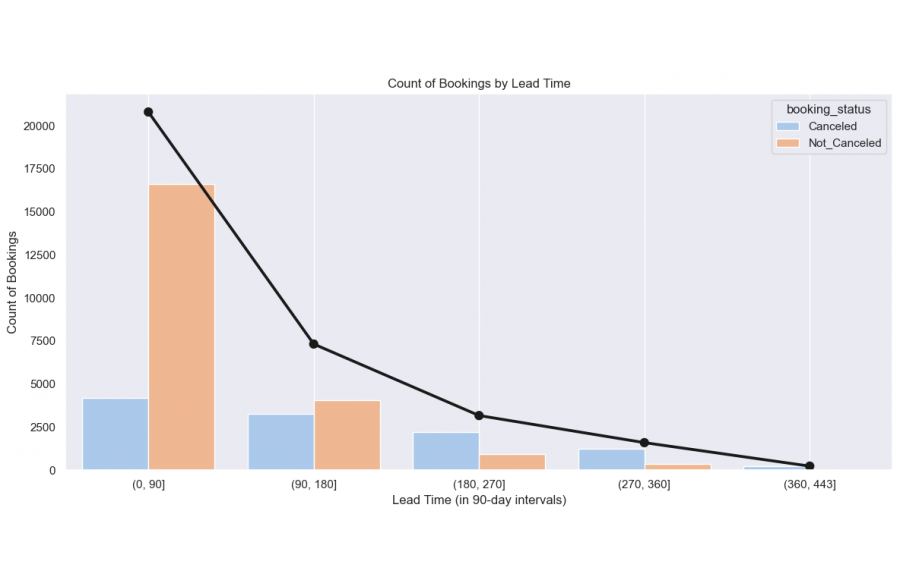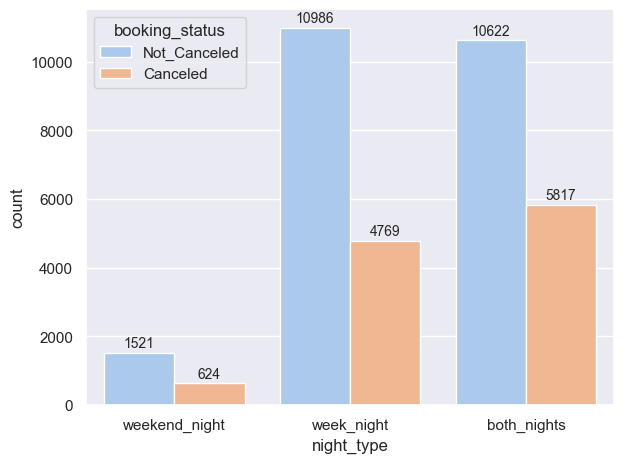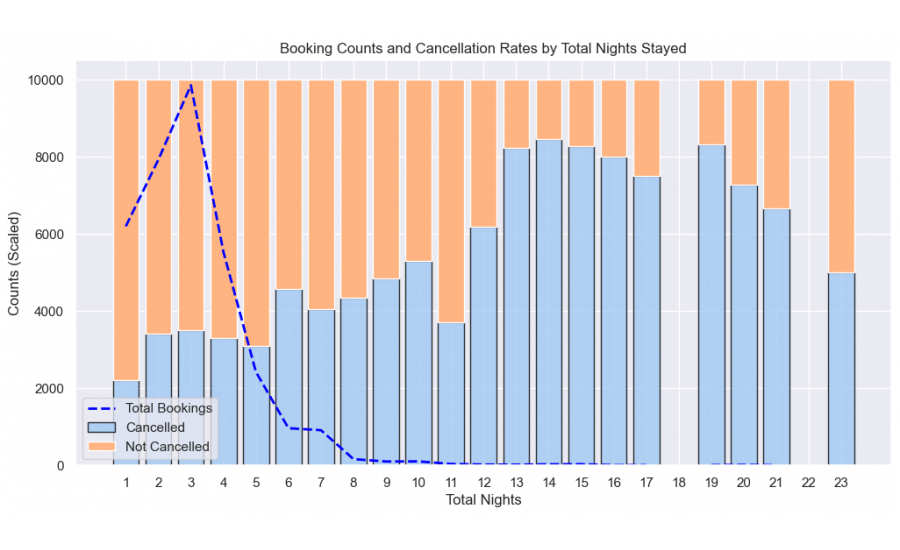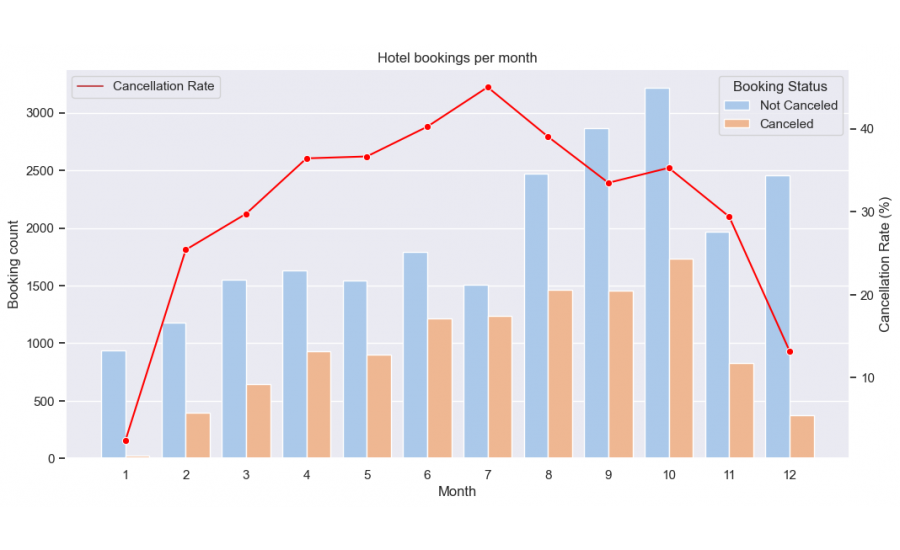In today’s competitive hospitality industry, understanding and mitigating room cancellations is critical for maximizing revenue. This project dives deep into a hotel cancellation dataset to provide actionable insights and predictive models that can aid hotels in formulating effective strategies to minimize cancellations.
Methodology
Unsupervised Learning: Clustering
Initial exploration involved using unsupervised learning techniques to identify distinct patterns in cancellations. By clustering the data, we gained valuable insights that informed the subsequent steps in our analysis.
Data Cleaning and Feature Engineering
- Handling of missing values
- Type conversion of variables
- Retained approximately 94% of the initial data through these processes
Supervised Learning: Random Forest Algorithm
- Achieved ~91% precision and ~93% recall
- Identified feature importances to understand key factors driving cancellations
Key Findings
Most Significant Factor
Lead Time: The time between booking and arrival is the most influential factor in predicting cancellations.

Weekend vs Weekday Cancellations
Cancellations are not significantly more likely during weekends.

Impact of Duration of Stay
Longer stays are more likely to be cancelled (~54.5%) compared to shorter stays (~32.3%).

Seasonality in Cancellations
Certain months exhibit higher cancellation rates, suggesting seasonality in cancellation behavior.

Special Requests and Cancellations
Customers with special requests are less likely to cancel their bookings.
Price Sensitivity
Bookings with an average daily price of $100 or more are more likely to be cancelled.
Recommendations
- Promote Last-Minute Bookings: Reward customers who book with less lead time.
- Automated Reminders: For long lead time bookings, send motivating reminders about the upcoming vacation.
- Incentivize Shorter Stays: Offer cashback on 1-4 night stays if they are not cancelled.
- Discount Strategy: For high lead time cancellations, offer a cancellation discount based on current prices.
- Test Price-Based Discounts: Consider testing discounts for longer, more expensive bookings.
- Fulfill Special Requests: Investigate if fulfilling special requests at the booking stage leads to lower cancellation rates.
- Explore seasonality further to develop targeted strategies.
Link to the Project: